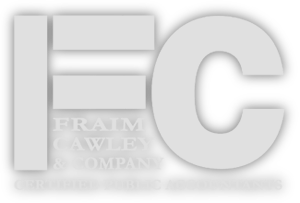“I can live with doubt and uncertainty and not knowing. I think it is much more interesting to live not knowing than to have answers that might be wrong.” – Richard P. Feynman
Hardly anyone is fully content with their current situation – least of all entrepreneurs. If you ask 100 business owners, even those who are relatively contented and happy, you would be hard pressed to find any who would say they want things to stay exactly the same. They all want to expand and grow, all want to become more profitable, all want to have more free time – they want something to happen to improve their current situations.
So why then, do so many of us stay exactly the same?
Often when I’m meeting with clients, we discuss what they want to accomplish. We go over their goals and aspirations, along with the timeframe in which they’d like to accomplish those things. And if they start stalling, we go over what is holding them back. (And to be clear: this sounds a bit like life coaching, but it’s not…mostly because being a coach requires a nicer, fluffier way of dealing with people. We do everything we can to help our client succeed, but the kumbaya/rah-rah aspect is not our style. We deal with business facts, realities, and strategies – while of course not ignoring that there are people and feelings involved).
And there can be a million different reasons why a business stalls – some of which are completely legitimate. But the one I run into the most (and find the most fascinating) is a reason that nobody expects: the person does not actually want to change.
Wait, I said just a second ago that everyone wants to change, so how am I saying the exact opposite now?
What I’ve found is that subconsciously, business owners find comfort in consistency and sticking to things they know – even if their current situation is far from ideal.
I experienced this phenomenon first-hand this past tax season. For the past few years prior to that, our firm had been short-staffed and had more work than we could handle. So it was a constant battle of just trying to keep up. There was more than we could do, so it was just a matter of trying to get the work done in a reasonably expeditious fashion. There was no time for anything else. And it was stressful.
Fast forward to this past tax season and we finally had the help we needed, with the addition of some outstanding team members. And it was fantastic. This freed up my time tremendously and allowed me to focus on the things I should do as an owner (strategy, marketing/sales, etc.) instead of solely cranking out tax returns. I was able to leave earlier every day, sleep more, and maintain some semblance of a normal life – which had not been possible for quite some time during tax seasons.
And weirdly…it was somehow more stressful than before.
How?
Because even though everything about the previous situation was demanding, being so busy did not allow any time to think about anything else. There was no debate as to what I was doing, when I was doing it, or if there were other things I should be doing instead. For those few months, there was only survival.
With the proper team, a large portion of that was gone. And even as an objectively positive thing, it still felt surprisingly taxing. (And yes, before you say anything: this is admittedly a first-world problem to have. “Woe is me: my employees are too helpful. Boo-hoo.” But this can still be a hindrance to our success).
My friend Robert Wright put it best when I was discussing this phenomenon with him: “It’s because you have time to think. And thinking is stressful.”
Having extra time allows you choice. And choice is inherently stressful because you might choose poorly. Being a technician and just completing tasks (even complicated tasks) has a certain simplicity to it. There is much less doubt, fear, or risk. Hiring additional help frees you from mundane tasks – allowing and requiring you to use your time more wisely and think more critically. And this is perhaps not a requirement some people want to take on.
I think this is one of the reasons that so many business owners never ascend from being technicians into becoming true entrepreneurs. The run-of-the-mill business owner will not hire the help they need to free them up for more valuable tasks. They will not boot their problem customers. They will not make changes they need to make, even though they know that failing to do so will stop them from reaching the goals they ostensibly want to achieve.
Because what is known is comforting. And as they say: “comfort is the enemy of success.”
Embracing that discomfort is not the easy choice. In fact, it’s much easier to just keep ourselves busy doing repetitive tasks. But accepting and welcoming that discomfort and uncertainty are the only way we will be able to effectively grow and achieve true success.
Any accounting, business, or tax advice contained in this communication, including attachments and enclosures, is not intended as a thorough, in-depth analysis of specific issues, nor a substitute for a formal opinion, nor is it sufficient to avoid tax-related penalties




